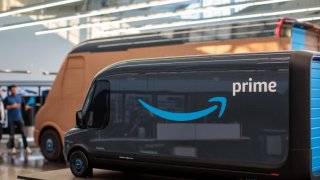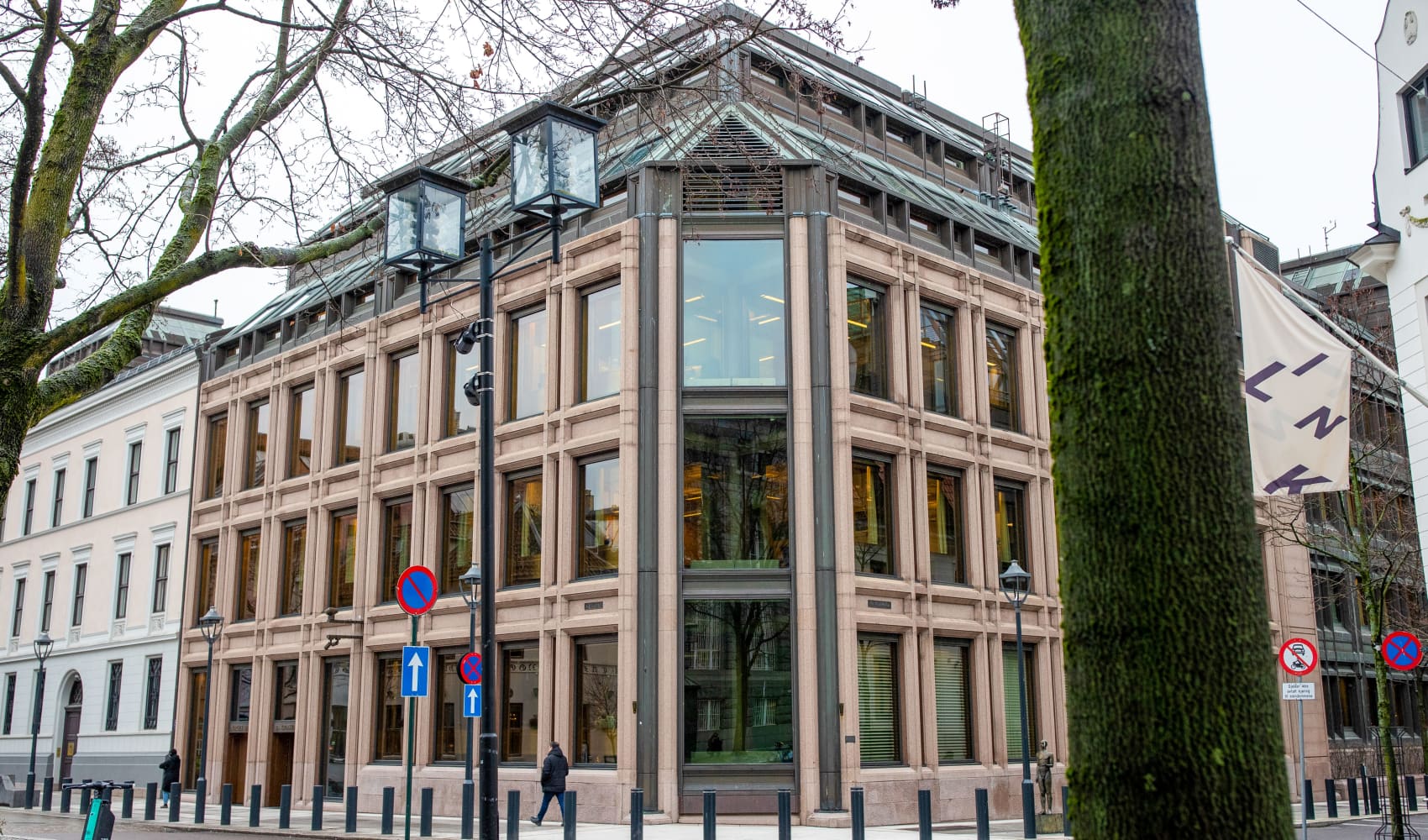
While the coronavirus pandemic captured the world's attention in 2020, the climate crisis was also massively destructive, with ramifications including an extended wildfire season in California and tens of thousands of deaths from air pollution and rising temperatures in the United States alone.
The global response to the climate crisis has been muted and insufficient according to international scientists and regulatory agencies, but with revenues and bottom lines at stake, businesses are increasingly changing their ways to adjust for the climate crisis.
More than half of consumers — 57% — say they are willing to change their purchasing behavior "to help reduce negative environmental impact," according to a study of 18,980 consumers in 29 countries conducted by the National Retail Federation with the IBM Institute for Business Value (IBV) and published in 2020.
And for companies, innovating more environmentally conscious business solutions is increasingly a way to drive profit. Fred Wilson, a partner at New York City investment house Union Square Ventures, says in a 2021 look-ahead blog post that investing in climate-related innovation will be incredibly profitable in the next decade.
"At USV, we have begun that reallocation of capital and we will be investing heavily in companies and technologies that can help the world address this existential threat," Wilson wrote in a blog post published Friday. "I believe that many of our colleagues in the venture capital world will do the same because not only does the world need this investment, it will generate fantastic returns too. Climate will be to this decade what cloud was to the last one."
As consumers demand environmental consciousness and businesses see profits to be made, innovation will infiltrate the consumer shopping experience more and more, according to a report published in December from market research company CB Insights.
Money Report
"Sustainability has taken on new meaning for companies since the onset of Covid-19," the report's author, Rachel Binder, a Senior Intelligence Analyst at CB Insights, tells CNBC Make It.
For example, "the pandemic exacerbated the global waste crisis," says Binder: Health and safety concerns drove "an accumulation of plastic waste," like disposable masks and gloves, she says, and things like restaurant shut-downs and other supply chain disruptions "led to an abundance of food waste."
As a result, "consumers now demand that brands be more transparent and environmentally conscious in the creation and delivery of their goods," Binder says.
Further, there is more pressure on companies as governments are "ramping up regulatory efforts to better incentivize brands' adoption of more sustainable operations," Binder says.
Here are five ways technology and innovation are infiltrating retail, as detailed in the CB Insights report.
Sustainable packaging
"Startups are extending the shelf life of perishable goods and reducing plastic waste with new materials and connected packaging solutions," the CB Insights report says.
Start-up Apeel, for example, makes an edible coating for vegetables and fruits that the company says can double the lifespan of the produce. In September, Apeel announced it was partnering with vegetable grower Houweling's Group to put its coating on English cucumbers (instead of the typical plastic covering used) in more than 100 Walmart locations. And Apeel avocados have been on more than 1,100 Krogrer shelves since 2019.
The report also notes start-ups innovating packaging, including Notpla, which makes edible packaging from seaweed, and Footprint, which makes biodegradable, compostable plant-fiber bowls, cups and plates. To-go salad-company Sweetgreen, for example, uses Footprint's compostable containers.
Resales, rentals and reducing waste
Recycling is in style.
"Digital resale and rental platforms will provide more sustainable alternatives to fast fashion," the CB Insights report says. Examples include Vestaire Collective, a marketplace for high-end used clothing, which raised $64 million in April, even as the global economy was reeling from the coronavirus pandemic and associated shutdowns.
And it's not just clothes. Back Market, a start-up which refurbishes and sells smartphones and appliances, raised $120 million in May from a number of investors including Goldman Sachs.
Furniture resale and rental start-ups are also having some success, CB Insights points out. Ajith Karimpana launched Bengaluru, India-headquartered furniture rental start-up Furlenco after he was only able to sell his less than two-year-old furniture for 10% of its original value.
And Ikea has launched several programs to promote recycling and reuse in international markets, including a pilot program to test out renting furniture and one to buy back used Ikea furniture in some international markets.
Subscription companies like Imperfect Foods, Hungry Harvest and Oddbox sell consumers surplus and food that might otherwise be rejected by the food system due to irregular shape, size or color.
Technology tracing the supply chain of products
Consumers increasingly want to know where products come from and how they are made, and regulators are also putting more pressure on businesses and manufacturers to be transparent about supply chains.
"Solutions that provide visibility up the supply chain will remain critical," the CB Insights report says.
Examples include start-ups like Material Exchange, whose software gives brands clarity on the sustainability of the materials used in their products (among other things). Companies like Calvin Klein, Ugg and North Face use the platform to source materials, CB Insights reports.
Other companies are making information about the brand's carbon footprint available to consumers, CB Insights points out. Chipotle's ordering app, for example, allows consumers to see the "foodprint" of their menu orders by showing the carbon footprint of the products the brand uses as compared to conventional sourcing. Bill Nye (the Science Guy) even teamed up with Chipotle to promote the feature when it was released.
Emissions-free logistics
Interest in electric vehicle maker Tesla has fueled an exponential rise in the carmaker's stock price (even making CEO Elon Musk the richest person in the world).
And philanthropist and Microsoft co-founder Bill Gates (who has a book about climate change coming out on Feb. 16), says electric vehicles being used at scale is critical to slowing global warming.
"[E]xactly do we fuel our need to move around without emitting greenhouse gases? The answer is simple, even if making it happen won't be: use clean electricity to run all the vehicles we can, and get cheap alternative fuels for everything else," Gates wrote in an August blog post.
And while consumer use of electric vehicles is key, it is also important for businesses to use electric vehicles to move freight.
"All-electric logistics vehicles have the potential to lower expenses and substantially reduce emissions for supply chain operators," the CB Insights report says.
Indeed, investing in all electric logistics original equipment manufacturers reached an "all-time highs in 2020" of $7.9 billion, Binder says. (That includes venture capital investments, with other equity investors such as private equity firms and corporations.)
For example, electric vehicle maker Rivian, best known for its partnership with and investment from Amazon, announced a $2.5 billion funding round in July. And in November, robotics company Nuro, known for its small self-driving vehicle for local goods transportation, announced a $500 million investment. In November, the British electric vehicle start-up Arrival announced it was going public through a merger with a U.S. blank-check company, CIIG Merger Corp. Earlier in 2020, Arrival inked a deal with UPS for 10,000 delivery vehicles.
In October, Swedish trucking start-up Einride announced a new line of electric, driverless freight trucks that don't have a driver cab and can be controlled remotely.
More sustainable ingredients
Investing in alternative protein start-ups reached an "all-time highs in 2020" of $2.3 billion, Binder tells CNBC Make It. (Again, that includes venture capital investments, with other equity investors such as private equity firms and corporations.)
Some of those deals include $500 million raised by the plant-based protein company Impossible Foods in March, $161 million by lab-grown animal product company Memphis Meats in January 2020, $160 million raised by the animal-free "dairy" food company Perfect Day in July, and a $225 million raise announced in January 2020 by Califia Farms, which makes a variety of dairy-free milk alternative products and coffee drinks.
Big retailers also continue to adopt such sustainable products. For example, in November, Pizza Hut announced the nationwide launch of pizzas with Beyond Meat sausage on top. "Pizza lovers everywhere are going to love it," David Graves, chief brand officer at Pizza Hut, said in a written statement at the time of announcement.
And in October, Califia Farms announced its line of Plant Butters, a dairy free alternative to butter which is made of cashews, avocado and olive oils and nutritional yeast. Their spreads are available at nationally at retailers including Whole Foods Market, Kroger, Stop & Shop and Target.
Going forward, innovation in green tech for the retail industry is likely to continue to increase, Binder says, and larger retailers will look to entrepreneurs in the space to lead the way.
"Retailers are also forging an increasing number of partnerships with start-ups across the sustainability ecosystem, and we expect this to continue moving forward as companies explore new technologies and business models that promote sustainability," Binder says.
See also:
WHO, World Bank: Covid-19 relief and climate change fight must be simultaneous or both will fail
2020 just a 'preview' of how bad things can get if we don't fix climate change: Lancet report
This 39-year-old tech exec has built 5 companies, but there's a price to his ambition
Don't miss: The best credit cards for building credit of 2021






